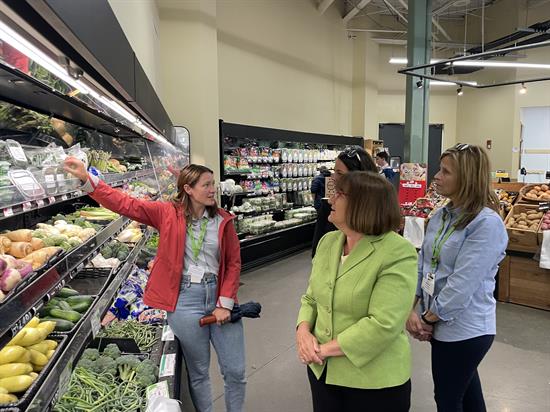Press Releases
Kuster Discusses Local Food Networks with Hanover Co-Op Food Stores, Highlights NH Priorities for 2023 Farm Bill**Kuster met with the leadership of the Hanover Co-op Food Stores at their Lebanon location to discuss their operations and the 2023 Farm Bill**
Lebanon,
July 10, 2023
Lebanon, N.H. — Today, Congresswoman Annie Kuster (NH-02) met with the leadership of the Hanover Co-op Food Stores to hear about their operations and tour the Lebanon location. During the visit, the group discussed the upcoming 2023 Farm Bill, which Congress is currently considering, and how the legislation can advance New Hampshire farmers’ and producers’ priorities. Specifically, Kuster highlighted the important role that food co-ops play in our food system and how we can expand access to fresh, local groceries for rural communities in New Hampshire and across the country.
“Access to fresh, affordable, locally-grown food strengthens our economy and helps our communities thrive. But, in rural areas across New Hampshire, access is not always possible. That’s why food co-ops are so important,” said Kuster. “It was wonderful to meet with the leadership of the Hanover Co-Op Food Stores today to discuss their operations, hear about their priorities, and tour their facility in Lebanon. I look forward to bringing the conversation we had today back to my colleagues in Congress as we work to finalize the 2023 Farm Bill.”
Rebecca J. H. White of Hanover Co-op's Public and Government Affairs Department said, "Our meeting today showcases how connected Representative Kuster is to our local and regional food systems. Her work shapes national farm bill programs that strengthen the many small, independent, and diverse food businesses that bolster our region toward an equitable and secure food future." Ms. White leads the Co-op's local and national Farm Bill advocacy efforts.
Kuster, a former Member of the House Committee on Agriculture and a fierce advocate for New Hampshire farmers and producers, has introduced or co-sponsored the following bills:
### |

